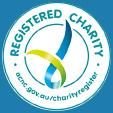Melanie Preen and Anouska Feszczur lead Respiratory Care WA’s Social Impact Team, helping schools, community groups, sporting clubs, and workplaces learn more about respiratory health. Their work gives people the knowledge and support they need to breathe easier and live a better quality of life. As working mothers, Melanie and Anouska balance the demands of supporting others while highlighting the importance of self-care. They advocate that prioritising physical and mental health isn’t selfish—it’s essential.
What inspired you to pursue a career in healthcare?
MP: During high school, I completed work experience with a physiotherapist and occupational therapist. Seeing their passion for helping others and the impact their services had on patients was inspiring. It became clear that I wanted a career in healthcare where my work would be meaningful and deeply rewarding.
AF: I always wanted to help and to teach. And working at Respiratory Care WA is the best of both worlds as we educate people to help them live their best lives
Over the years, what positive changes have you seen for women working in healthcare?
MP: Job sharing has become increasingly common in healthcare, and it’s easy to see why. It offers a win-win solution—organisations benefit from two distinct skill sets within one role, while employees gain greater flexibility in managing their work schedules.
AF: More flexible workplaces and hours have made it easier for those with families to continue to contribute in a meaningful way to both work and family.
Have you faced any challenges or obstacles in your career and how did you overcome them?
MP: Returning from maternity leave is always a big decision to make for a mum with a small child. Each time I’ve worried about not finding the right work/life balance and ensuring I can give my best to both my family and my role. Fortunately, my workplace has always supported me with the flexibility I needed allowing me to give the best of me to both my kids and my work life.
AF: Trying to find a good work life balance when I went back to work after having my son. I had to be intentional about what work I did and what hours I would work in order to maintain a good balance.
”The diversity of my work keeps me engaged, and knowing I’m making a real difference is incredibly rewarding.
Melanie Preen, Coorindator Cultural Services
Respiratory Technician/Respiratory Health Educator
As part of the Social Impact team, what does a typical day look like for you?
MP: The part I love the most about my role is that there is no “typical day. My job is to ensure that, no matter where someone is—whether at home, school, on Country, off Country, or even in prison—they have access to the support and education they need to manage their respiratory condition. I could be having a yarn at a First Nations Medical Service, providing care from a truck in a car park for people experiencing homelessness, training a mining company in asthma first aid, or demonstrating how to use a spacer in the middle of the bush—sometimes in 45-degree heat! The diversity of my work keeps me engaged, and knowing I’m making a real difference is incredibly rewarding.
AF: Lots of communications with all different consumers and stakeholders. And identifying ways in which we can make the most positive impact on people’s health.
What’s one piece of advice you’d give to women about prioritising their health?
MP: As a mum of three, I rarely practice what I preach—always putting my family’s health before my own. I really need to prioritise regular medication reviews and taking my prescriptions for asthma properly. Every winter, I regret it when that first bad virus knocks me down for weeks.
I see the same in many communities, especially Nannas and Grandmas who put their grandkids first. I always remind them—if Nanna gets sick, who’s picking the kids up from school or taking them to footy? Looking after yourself isn’t selfish; it’s essential.
AF: It’s not selfish to look after your physical and mental health. If you are healthy and happy, you can show up more for the people you love.
”It’s not selfish to look after your physical and mental health. If you are healthy and happy, you can show up more for the people you love.
Anouska Feszczur, Community Education Manager
What do you think are some of the biggest challenges women face in accessing quality care, and how can these challenges be overcome?
MP: It is hard for the average women living in the metro area to find the time to see their GP and attend Specialist appointments. We commit ourselves to so many things these days. For women living in remote or regional parts of WA it’s even harder to get things in order so that you can attend a Specialist appointment in Perth. You have to leave your job, family and other commitments to drive all day to attend your appointment and then drive all the way back home. This is why services such as ours at Respiratory Care WA need to be accessible in regional and remote areas of WA.
AF: The gender bias with regards to evidence-based medicine. A lot of research in healthcare hasn’t included women. And healthcare issues that affect women have often been overlooked in research. Hopefully we will work towards more inclusion of women and women’s issues in medical research.
”It’s not selfish to look after your physical and mental health. If you are healthy and happy, you can show up more for the people you love.
Anouska Feszczur, Community Education Manager
This year’s International Women’s Day theme is #AccelerateAction what does this mean to you?
MP: It is a bit sad to read that it will take another five generations from now to reach full gender parity. I think we can do better than that.
AF: To speak up and say something when things don’t feel right, even at the most local level – eg. starting off with calling out issues with friends and family.



